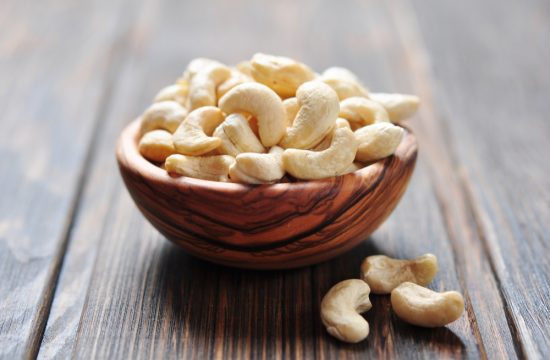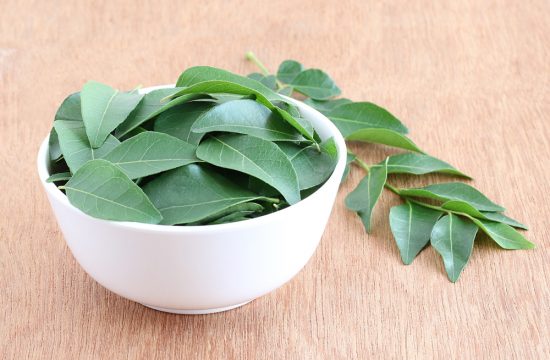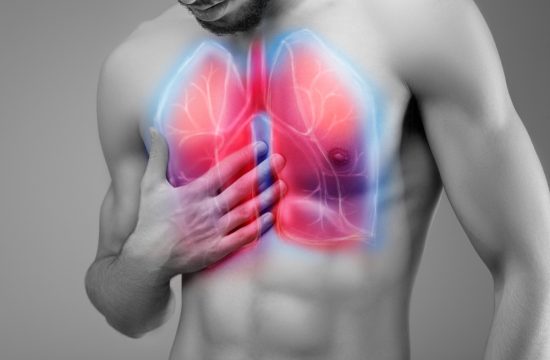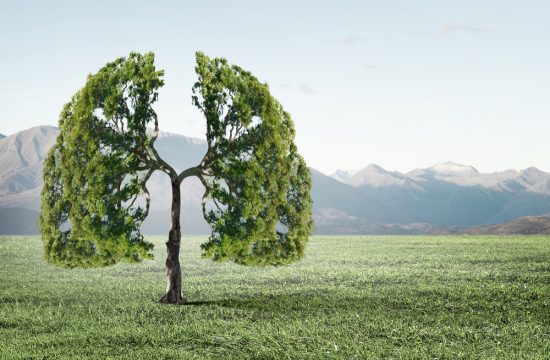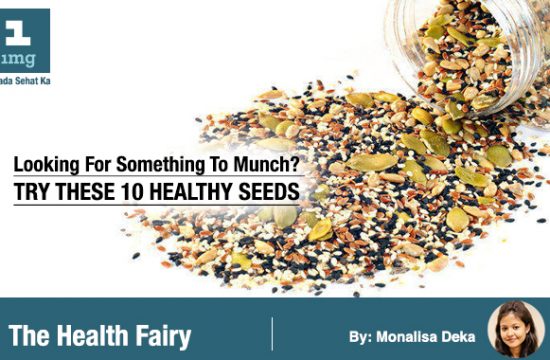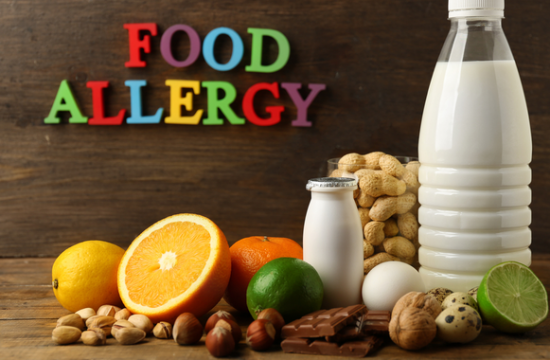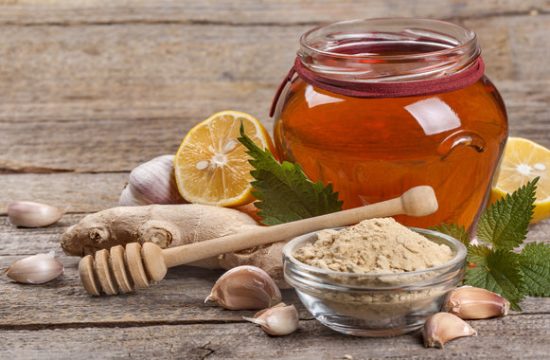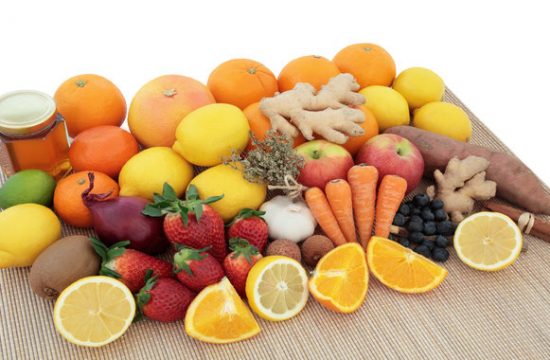Your teeth are an important part of your personality. When you meet someone, your smile is going to be your first impression on that person. Dental caries or tooth decay stands in the way of you and a perfect smile. But what are dental caries and how do they occur?
Our teeth are formed of 3 layers of the structure.
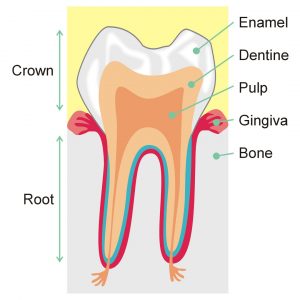
The upper layer is called enamel. It is the strongest layer of the tooth. Under the enamel lies the dentine, dentine contains the pain receptors responsible to make your teeth feel hot or cold. Under the dentine is the pulp chamber which contains the blood and nerve supply to the tooth.
Dental caries is the breakdown of tooth enamel and its underlying layer called dentine by certain kinds of bacteria. These bacteria occur naturally in the oral cavity, but when we eat food that sticks to the surface of the tooth, these bacteria act upon it and produce acidic substances which are harmful to the tooth. The acid formed makes our enamel weak and causes it to wear off, making way for the bacteria to act upon the dentine. If caught on time, we can remove the decayed portion of the tooth and save the remaining structure. Failing to do so only results in deeper caries which can extend up to the pulp of the tooth which would require more expensive and invasive treatments.
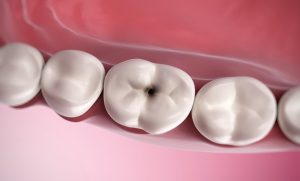
A smile is the reflection of your soul. Yet we do little or nothing to take care of our teeth. We think that till we are brushing our teeth daily we are doing our part. We go about our day eating things that we like without any regard to our teeth. We are what we eat, and this holds true for our teeth too. Sinking our teeth in our favourite dessert may be the most satisfying feeling in the world, but when consumed out of moderation it can be a cause of a toothache.
What is good for your teeth?
Milk:
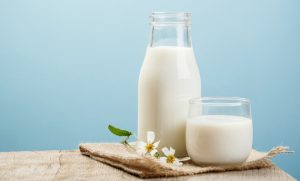
Milk is not only beneficial for your bones but also for your teeth. The calcium in milk helps in increasing the strength of the teeth. Enamel, the outermost covering of teeth is made of calcium, and milk helps in repairing it. Moreover, it helps in maintaining the pH of the mouth, making the oral cavity unfavourable for development of dental caries.
Apples:
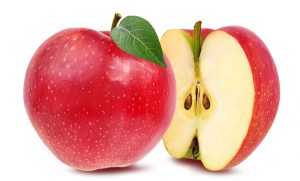
Apples are rich in fibre. Due to their high fibre content, they act as a natural toothbrush and help in removing stains and plaque from the teeth. They also scrub the tooth, gums and tongue, helping in increasing the blood circulation and removing the debris from the oral cavity. An apple a day will surely keep the dentist away.
Green Tea:
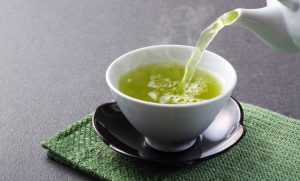
Green controls the bacterial growth and reduces the acidity of the oral cavity. They are rich in antioxidants, this helps in preventing dental caries and maintaining oral health. A recent study found out that people who drink green tea have a lower risk of developing bleeding gums and tooth decay. So green tea not only helps you to lose weight but also have healthy teeth!
Cheese and Yogurt:
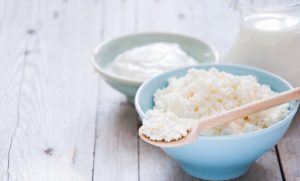
Fermented dairy products like cheese and yogurt are alkaline in nature, which means they can neutralize the acidity of saliva. This lowers the risk of dental caries. Also, cheese releases certain chemicals when consumed which form a protective layer on your teeth, preventing your enamel from decaying. Eating cheese and unsweetened yogurt is not only good for your health but your teeth too!
Green Vegetables:
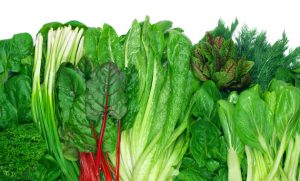
Green leafy vegetables are high in fibre which act as a natural toothbrush, scraping off debris and plaque away. They are also rich in vitamin A and C which helps in maintaining the health of our gums. Vitamin A helps in repairing of the gums and Vitamin C helps in keeping the gums from bleeding.
Carrot:
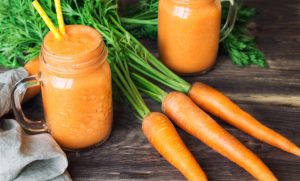
Like green leafy vegetables, carrots also have high fibre content. Eating carrots at the end of a meal not only removes the debris but also promote salivation which protects your teeth against cavities. They are also an excellent source of Vitamin A which prevents your teeth from decaying.
Whole Grains:
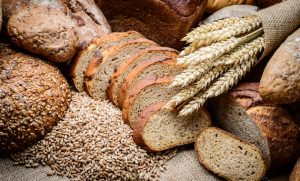
Whole grains or unrefined flours are those which haven’t been sifted to remove bran from the. When grains are refined, they have a few nutrients and fibers sifted out of them. They stick to the teeth and promote bacterial growth. Eating whole grains is a healthier option since it doesn’t stick and is rich in nutrients like vitamin B and iron.
Fish:
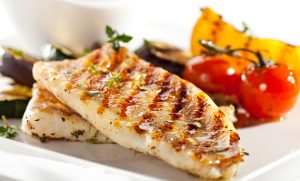
Fishes are a rich source of Vitamin D. Vitamin D helps our body to absorb calcium which is a building block of enamel. Another important mineral that helps in strengthening enamel is phosphorus, which is found in abundance in fish.
Eggs:

Eggs have long been blamed to be high in cholesterol, but they are also high in Vitamin D. When eaten in moderation eggs are an excellent source of vitamin D making them good for your teeth and health.
Artificial Sweeteners:
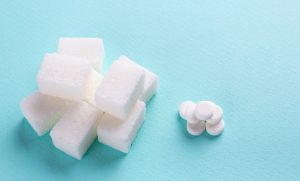
Sugar is the main culprit behind tooth decay. When consumed, sugar sticks to the surface of the teeth and promotes bacterial growth. Using artificial sweeteners like xylitol or sorbitol as a replacement reduces the chances of having dental caries.
Now that we know the food that can help us keep our teeth healthy, let’s look at the foods that should be avoided.
What is not good for your teeth?
Candy:
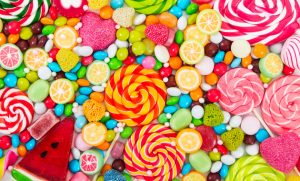
Candies are sticky and sugary sweets that stick between the teeth and are difficult to get rid off. They are the biggest enemy of our teeth and should be avoided at all cost. The sugar in candies makes our teeth more prone to caries and their sticky nature means we can’t get them off our teeth completely once they are consumed.
Coffee:

Coffee is acidic in nature. When consumed, it lowers the pH of oral cavity. This causes the enamel to erode, which makes our teeth brittle and susceptible to caries. Moreover, coffee being a dark drink, leaves stains on the teeth. These stains require professional cleaning to get rid off.
Cold Drinks:
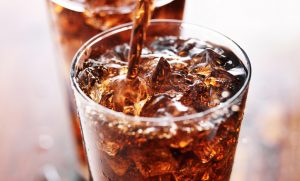
Cold drinks or soft drinks contain high amounts of sugar. Apart from that they are made of carbonated water, which makes them acidic. When combined, they attack the enamel of our teeth, making them brittle. Each sip of soft drink starts a chemical reaction that damages our teeth for 20 minutes and sippining them all day only keeps our teeth under constant attack.
Red Wine:

Red wine has long been put on a pedestal as being good for your health, however, like with any other dark drink, they leave a stain on our teeth. Red wine is also acidic which wears down the enamel and can expose the dentine underneath. Add to that the alcohol content of the drink which has been linked with increased risk of mouth cancer.
Lemons:
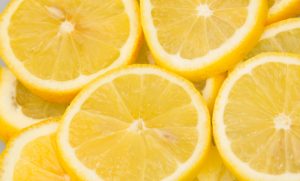
Lemons don’t cause cavities per say. They are good for our health and promote healthy gums. But they contain citric acid which harms our enamel and wears them down. So what can we do? Have a glass of water after consuming lemons to wash them off the tooth surface, this way you can get all the benefits of lemon and also protect your teeth.
Tomatoes:
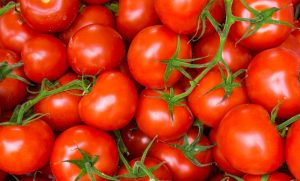
Like any other acidic food, tomatoes are also bad for your teeth. It makes your enamel porous. Obviously, when eaten as a part of a meal, the acidity of tomatoes is reduced. Drinking a glass of water after consuming them also helps to maintain the pH of your mouth.
White bread:
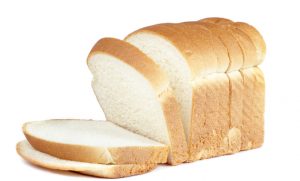
White bread is made from refined flour which sticks to the teeth and is difficult to clean off. White bread is pure carbohydrate which when consumed breaks down into sugars in the oral cavity and expose our teeth to sugar acids.
Dry fruits:
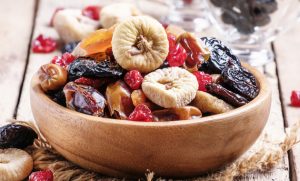
Dry fruits are considered a healthy snack, but what we overlook is the fact is that they are sticky. Sticky food tends to damage the teeth since it stays on the tooth surface for long. If you wanna eat dry fruits, make sure you rinse and brush your mouth thoroughly afterwards.
Potato Chips:
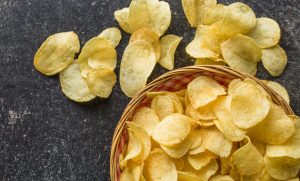
Potato chips are full of starch and are easily trapped between the teeth. This makes them an ideal food for the bacteria to attack and cause dental caries. If you find yourself reaching for a bag of chips, floss and brush properly afterwards to remove all debris and build up.
Pickles :
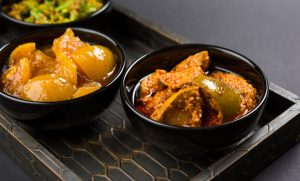
Most pickles use vinegar or some other form of acidic base to preserve. This makes them a harmful food for our teeth. Contrary to other suggestions. Brushing after eating something acidic should be avoided at all costs since our enamel is weak after consuming the acidic food and brushing after that would only cause rapid wearing.
Unlike most parts of our body, our teeth cannot repair themselves. So, it is necessary to take care of them and ensure that any dental problem is caught at an early stage. Apart from eating and avoiding the right foods, following proper oral hygiene and regular dental visits are also important.
Your diet can define your smile, take care of it with the right foods!
Recommended Reads:
Food Allergies: 10 Most Common Causes, Symptoms, And Types.
1,254 total views, 2 views today

